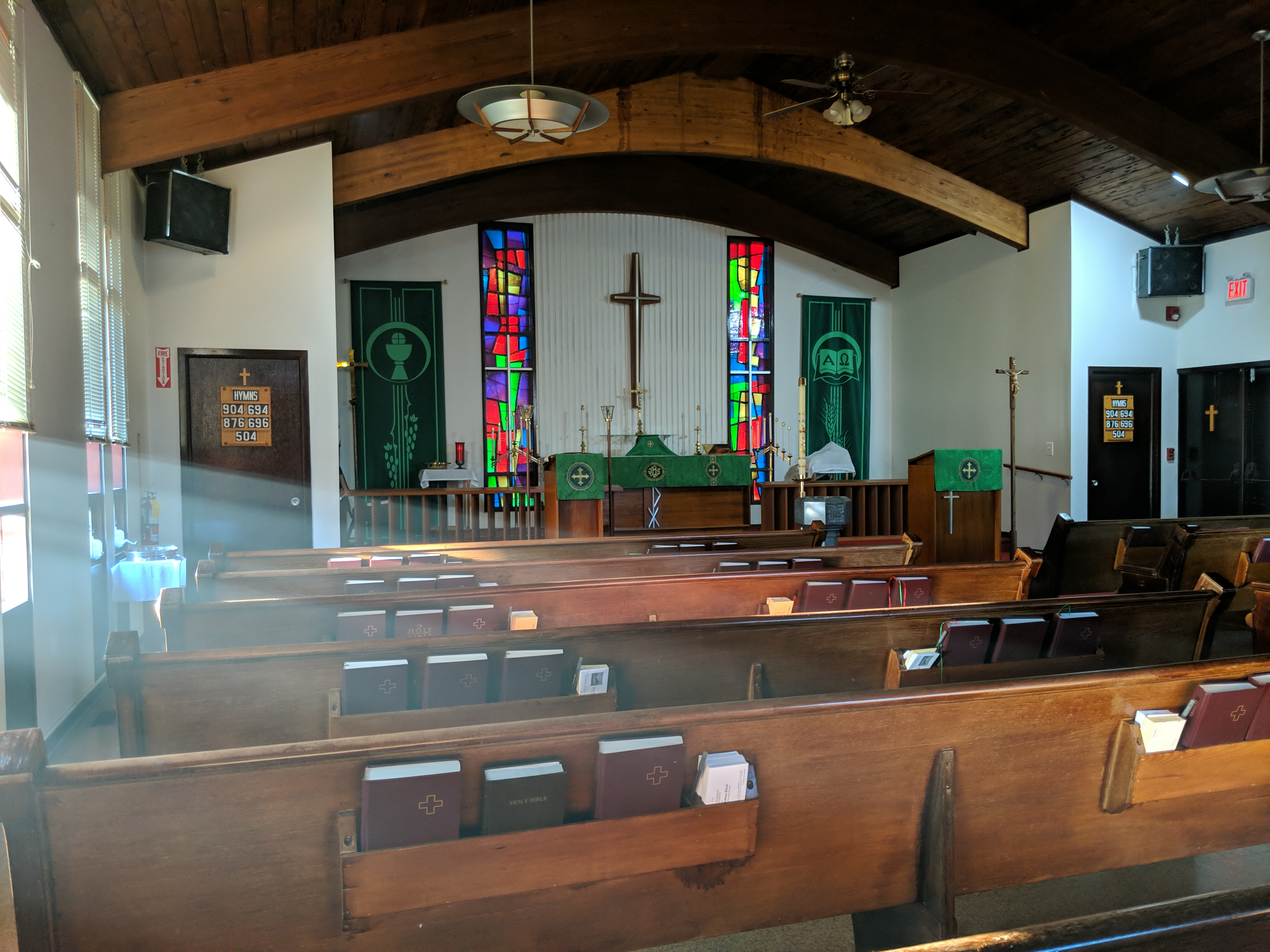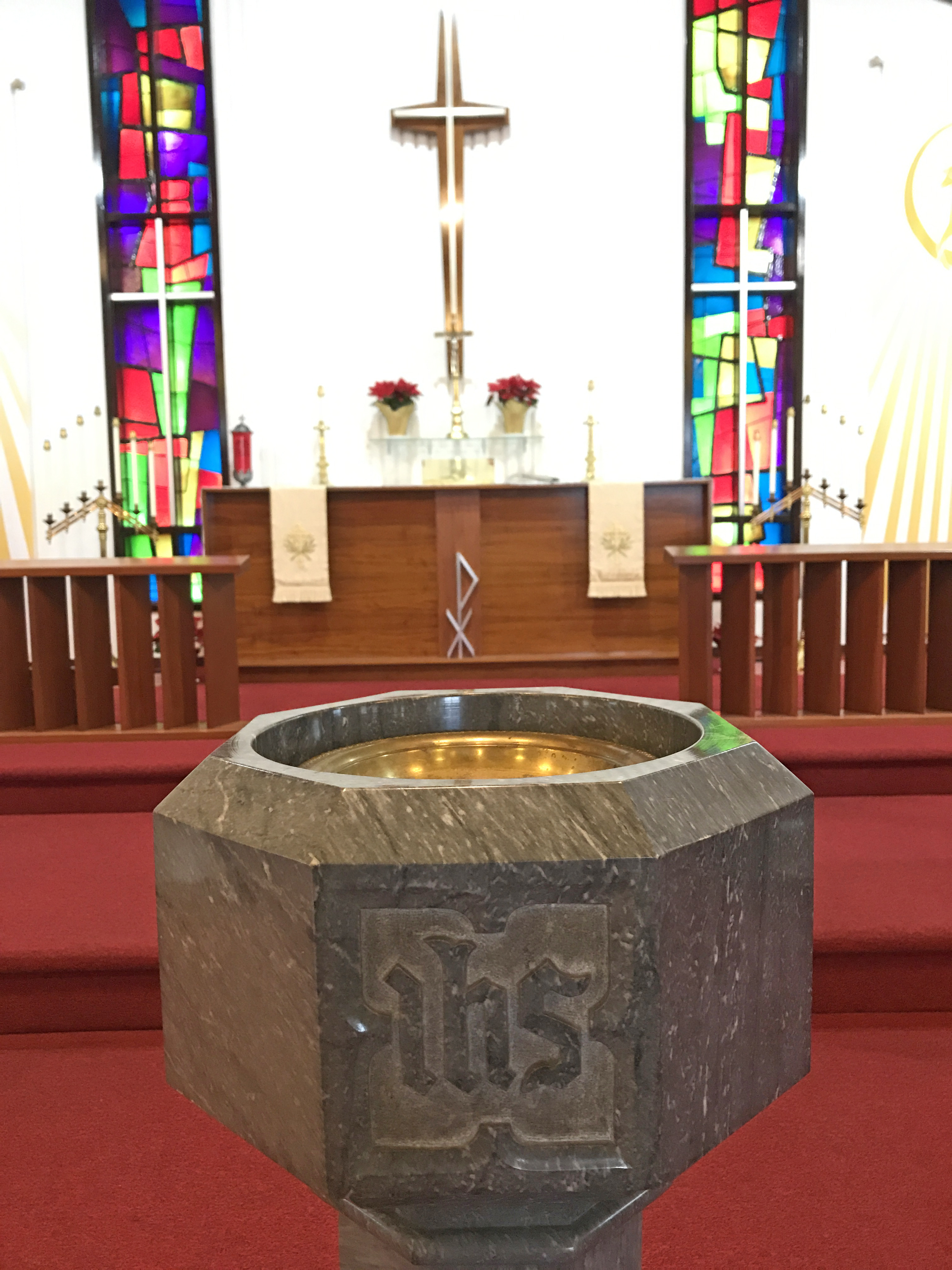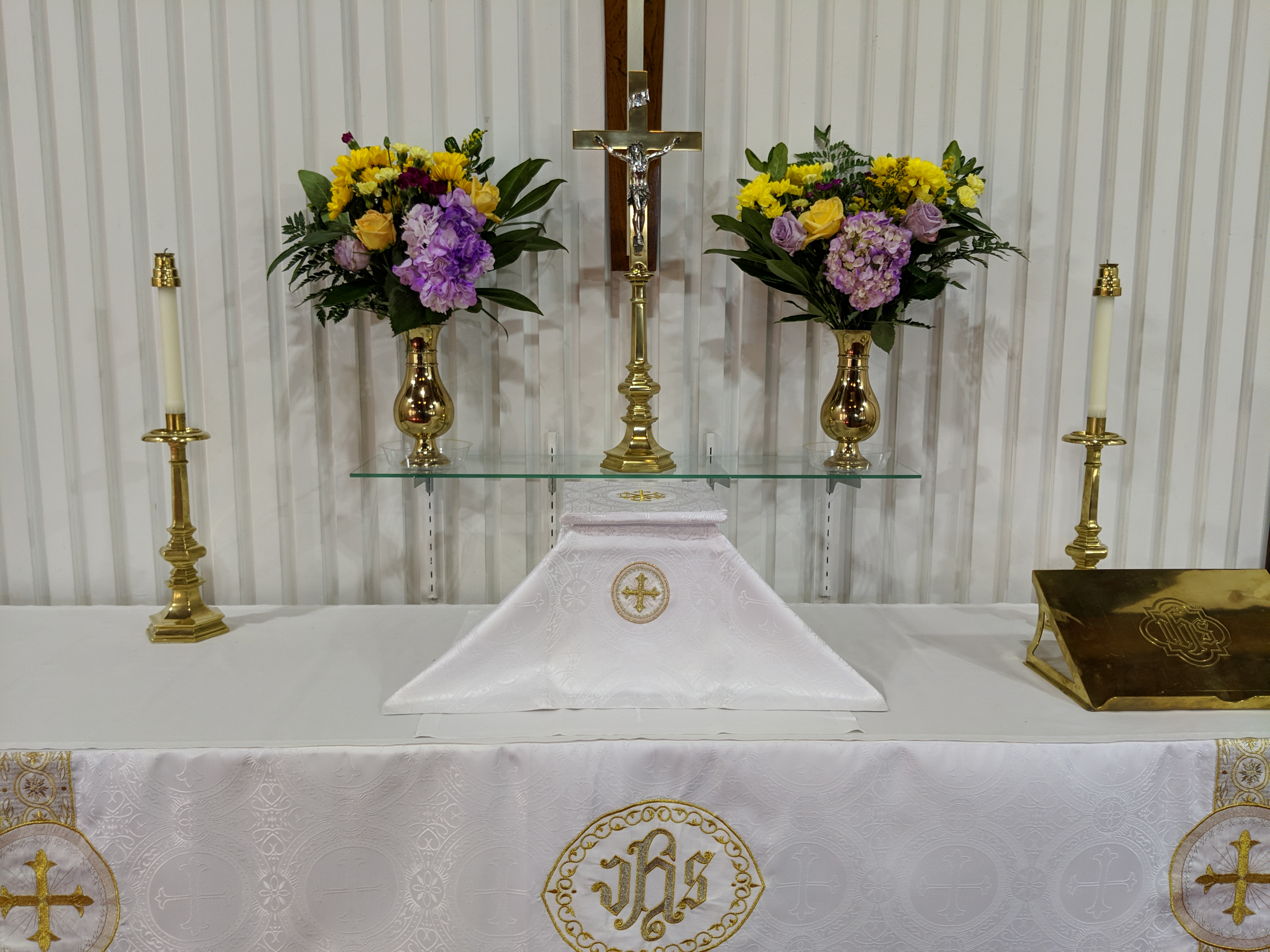✠ Psalmody: Psalm 25:1-3a;25:4;25:3a, 4;85:7;25:1-3a;85:12
✠ Lection: James 5:7–10; St. Matthew 3:1–6
In the Name of the Father and of the ✠ Son and of the Holy Spirit. Amen.
The Sundays in the Church Year function not as stand alones, but as the very thing that they are, that is, the first day of a week of days. So, for example, if you’ve ever wondered how it is decided which color the paraments and vestments will be in a Saturday or weekday service, the days following Sunday typically inherit the preceding Sunday’s color, with some notable exceptions like the upcoming Ember Days following Gaudete. Church seasons tend to function with a day to mark an event or a person, followed then by days of observance. You see this with Christmas, Epiphany, Easter, and Trinity where the Christmas season begins on Christmas Day and continues for 12 days; the Epiphany season begins on the Day we celebrate the Epiphany of our Lord and continues until Pre-Lent. Our colors follow that pattern, too. Hence violet for us tonight, because Ad Te Levavi was violet.
Likewise,. None of the Sundays in Advent have only one chapter of the Bible used to build its Introit, Gradual, and Alleluia Verse, but this week’s comes the closest by being mostly made up of selections out of Psalm 25. It is the one of our focus tonight. Here is the psalm in its entirety:
A Psalm of David.
1 Unto thee, O Lord, do I lift up my soul.
2 O my God, I trust in thee: let me not be ashamed,
Let not mine enemies triumph over me.
3 Yea, let none that wait on thee be ashamed:
Let them be ashamed which transgress without cause.
4 Show me thy ways, O Lord; teach me thy paths.
5 Lead me in thy truth, and teach me:
For thou art the God of my salvation;
On thee do I wait all the day.
6 Remember, O Lord, thy tender mercies and thy lovingkindnesses;
For they have been ever of old.
7 Remember not the sins of my youth, nor my transgressions:
According to thy mercy remember thou me
For thy goodness’ sake, O Lord.
8 Good and upright is the Lord:
Therefore will he teach sinners in the way.
9 The meek will he guide in judgment:
And the meek will he teach his way.
10 All the paths of the Lord are mercy and truth
Unto such as keep his covenant and his testimonies.
11 For thy name’s sake, O Lord,
Pardon mine iniquity; for it is great.
12 What man is he that feareth the Lord?
Him shall he teach in the way that he shall choose.
13 His soul shall dwell at ease;
And his seed shall inherit the earth.
14 The secret of the Lord is with them that fear him;
And he will show them his covenant.
15 Mine eyes are ever toward the Lord;
For he shall pluck my feet out of the net.
16 Turn thee unto me, and have mercy upon me;
For I am desolate and afflicted.
17 The troubles of my heart are enlarged:
O bring thou me out of my distresses.
18 Look upon mine affliction and my pain;
And forgive all my sins.
19 Consider mine enemies; for they are many;
And they hate me with cruel hatred.
20 O keep my soul, and deliver me:
Let me not be ashamed; for I put my trust in thee.
21 Let integrity and uprightness preserve me;
For I wait on thee.
22 Redeem Israel, O God, out of all his troubles.
Notice the voice of prayer from King David. In all his needs, in all his desires, he knows the one and only source of Power from Whom and by Whom such prayers are to be answered. David doesn’t begin with “I need…” or “I hope…” or “I want”, but immediately places himself within the care and will of God. Unto thee, O LORD (Yahweh), do I lift up my soul. Ten times in this psalm, David refers to the Lord by His holy, divine, covenantal Name, which is of no little significance. It’s God’s covenantal name because by it He promised Himself to His people. The word for covenant is quite literally contract. It describes two parties coming to an agreement where both contribute something to the deal, yet that very fact is absurd in our case with the Lord Almighty. What can man offer to God so that He’d be tempted to enter a binding contract with such wretched sinners? Nothing. We only offer Him selfishness, disregard, unfaithfulness, laziness and idolatry, just to name a few. Therefore, the contract, the covenant with us into which He has entered has to be based solely upon Who He is and upon His unwarranted love for us. Only because He is holy is He willing to seek out the unholy. Only because He is merciful is He willing to act for the benefit of the merciless. Only because He is gracious is He willing to send His Son to save us from ourselves, from our sin, from our eternal death. There’s no logical reason for the one and only true God to bind Himself to sinful man in a covenant, yet fallen human logic is not, thanks be to God, how He deals with us.
And David, in faith, believes this wonderful truth and shows us how spiritually healthy it is to pray in such a manner: as sinners with no right of our own to ask anything of God, but because of Who He is and what He has done for us, He of His own gracious will shows that He desires that we call upon Him in every trouble; to pray, praise, and give thanks. Recalling the promises of God to Him in our prayers isn’t insulting as if we’re insinuating that the very Creator of the mind has Himself somehow forgotten Who He is. Pray confidently and comfortingly that He not remember your sins and your transgressions. This, He promises, for He placed them upon Christ on the cross. So pray as David does, “Remember not the sins of my youth, nor my transgressions… for thou art the God of my salvation.” Praying for Him to carry out such truth in our lives is good for us because none of God’s promises go unfulfilled. “Forgive me of my angry words and the hateful things I say!” Done. You are forgiven in the name of the Father and of the Son and of the Holy Spirit. “Deliver me in these days of trouble in my life!” Done. Peace be with you, my child. “Show me thy ways, O LORD; teach me thy paths. Lead me in thy truth, and teach me!” Done. “The Word became flesh and dwelt among us, and we have seen his glory, glory as of the only Son from the Father, full of grace and truth.” He leads you to life in the very incarnate Truth Himself.
There’s beautiful alternation throughout this psalm in that David not only banks on the Lord’s promises, bound up even within His very Divine name itself, but he confesses his own assurance in the truth of the Lord. He prays “let me not be ashamed, let not mine enemies triumph” and asks “show me, teach me, lead me” and “teach me” again. And the One from Whom David seeks such favor is the One he confesses, “Good and upright is the LORD:…he will teach…he will guide…All the paths of the LORD are mercy and truth.” Such are the ways and paths of the Lord for you, too, so that when you continue to battle trials, temptations, pain, sin, doubt, the evil foe, the world that knows not the Light That created it, that was sent to it, you can be confident in your prayers prayed in the Light that is Christ; also in your actions, also in your life. Be confident and rejoice that you have forgiveness of your sins, that you have refuge, mercy, and peace, in and from the One to Whom you trustingly lift up your soul, the God of your salvation.
In ✠ Jesus’ Name. Amen.















Comments are closed, but trackbacks and pingbacks are open.